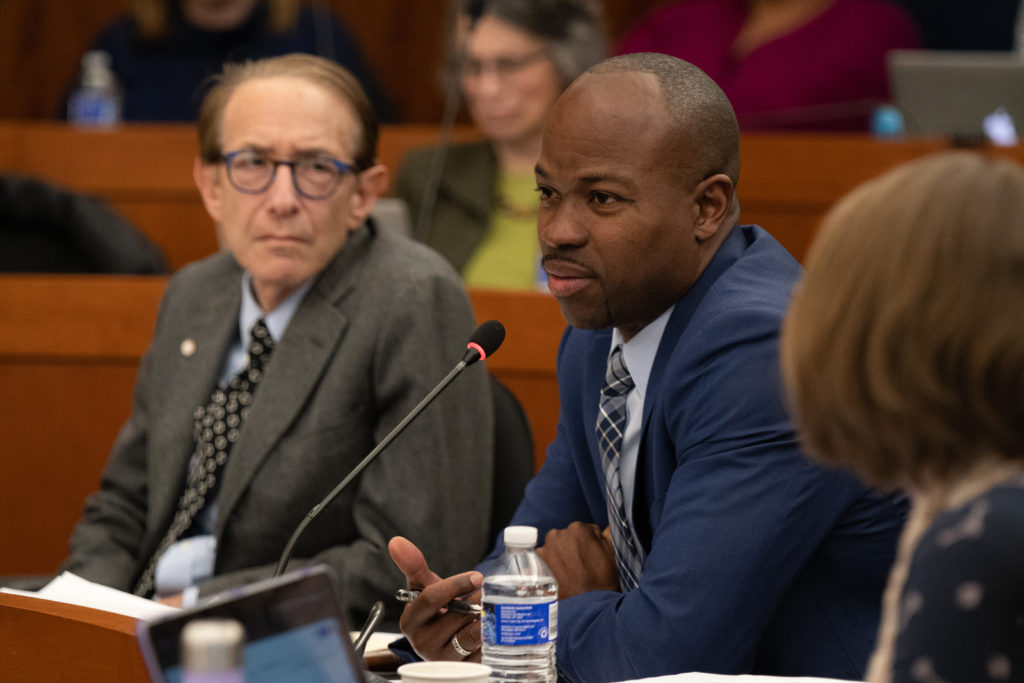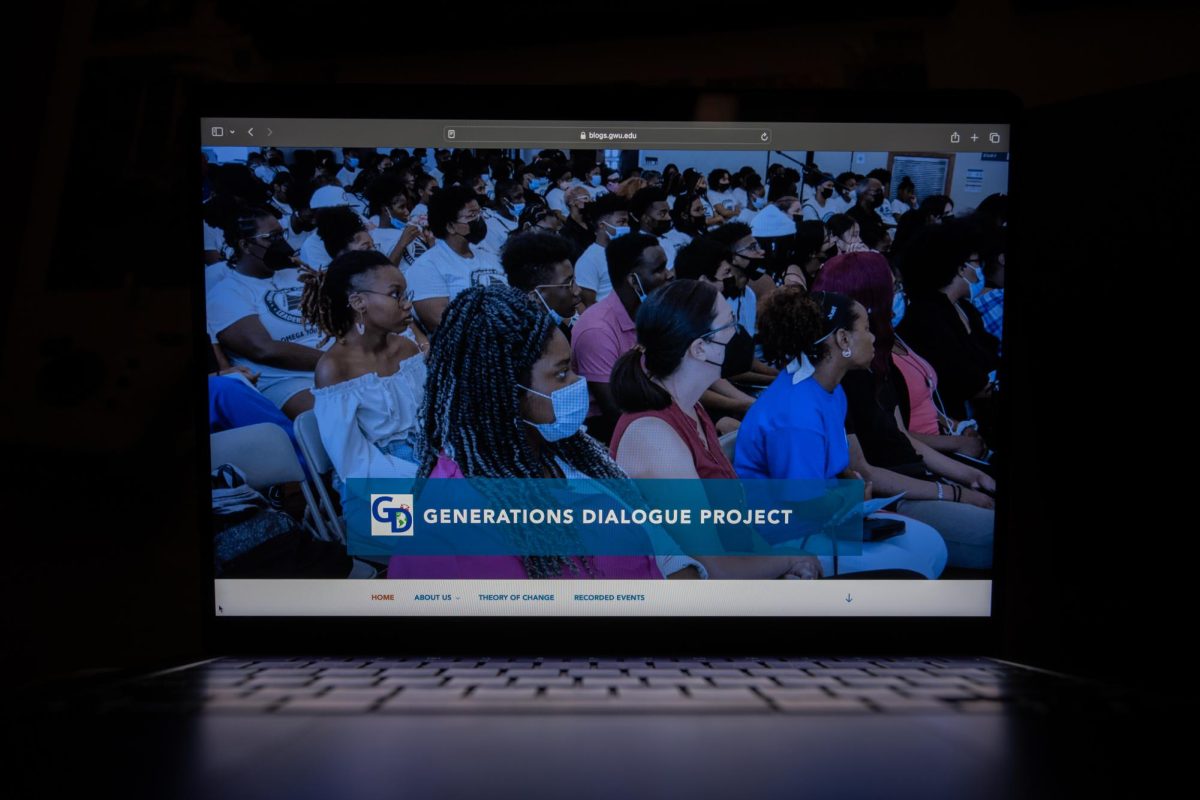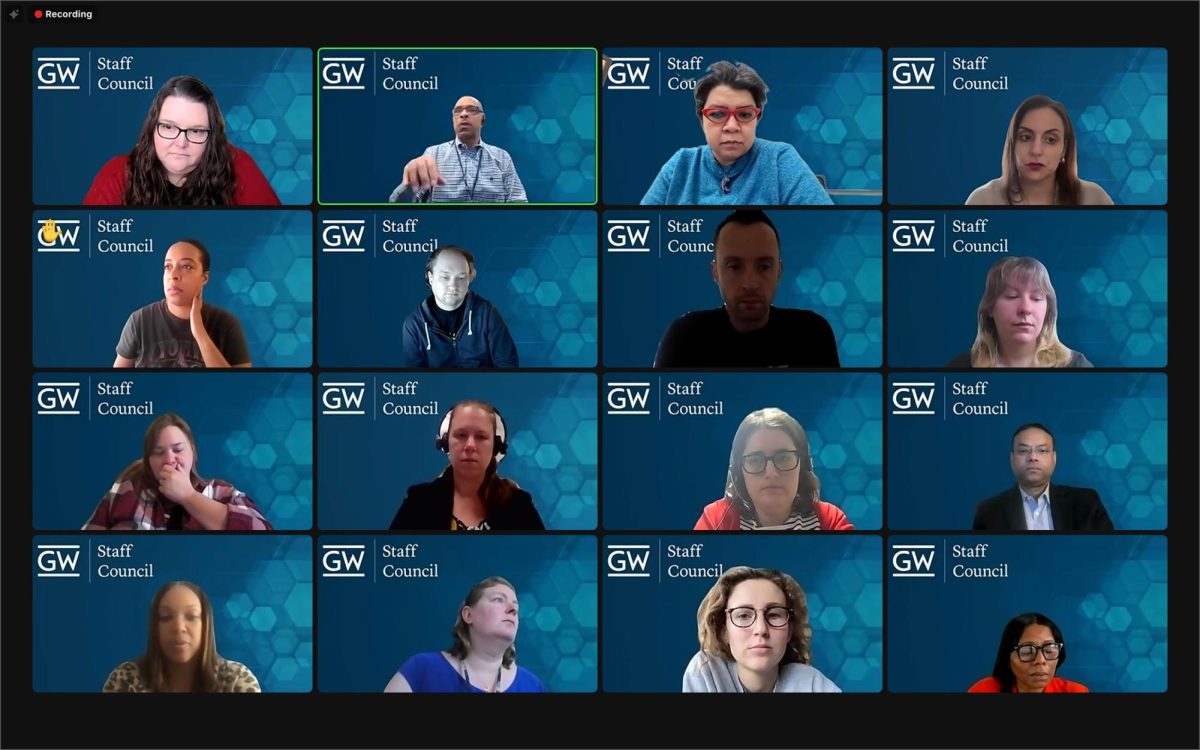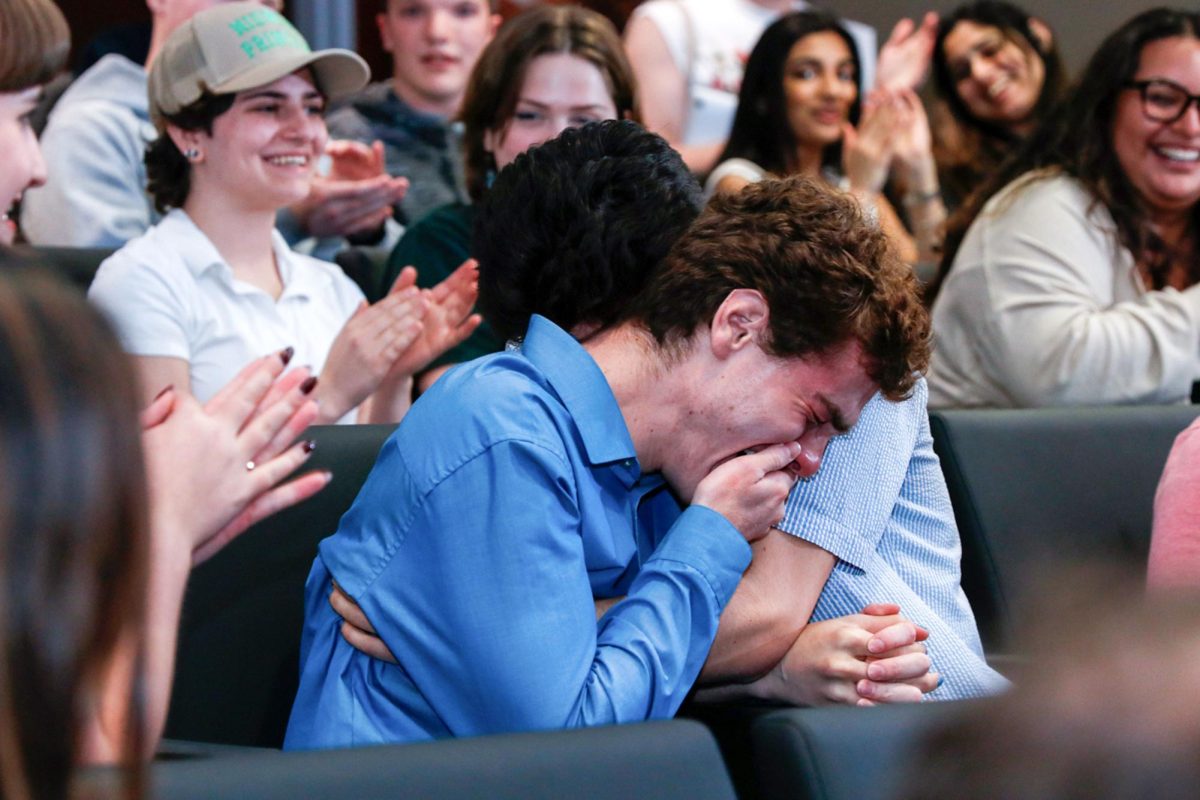Provost Brian Blake is stepping down from his position effective immediately after he was announced as Georgia State University’s sole finalist for the position of president.
University President Thomas LeBlanc said in an email to the GW community on Thursday that he will consult the deans and Faculty Senate executive committee to identify an interim provost. The vacancy will leave the University needing to replace two of its top officials over the course of the next year, after LeBlanc announced last month that he would step down at the end of the 2021-22 academic year.
Blake was previously announced as one of two finalists for president at the University of Rhode Island in March but later withdrew from consideration for the position in April.
“As a native Georgian, I am honored and humbled to be named finalist for the presidency of Georgia State University – the largest institution of higher education in my home state,” Blake said in a University System of Georgia release.
Blake would be Georgia State’s first Black president, the Atlanta Journal-Constitution reported. The USG Board of Regents will vote on confirming Blake as their next university president no sooner than the next five days, according to the release.
Blake said in 2019 that his goal was to become a university president within the next five years.
“I would love for [the university] to have a football team,” he said in 2019. “I would like for it to be a private institution. I’d like to be in a major city in the east. That limits it down to maybe five or six choices. I’m gearing up for a really big announcement in the next couple of years.”
Blake did not immediately return a request for comment through a University spokesperson.
Since starting as provost at GW in November 2019 and spending the majority of his time helping lead the University during the pandemic, Blake has sought to develop connections with students and implement new academic programs, like a doctoral program in public health and another in biostatistics.
Blake began his tenure in the midst of the 20/30 Plan, which sought to reduce the undergraduate student population by 20 percent and increase the proportion of undergraduate STEM majors to 30 percent. His background in engineering seemed a proper fit for LeBlanc’s emphasis on the STEM fields, having taken over as provost for Forrest Maltzman, who worked in GW’s political science department.
But less than five months after his arrival, the COVID-19 pandemic upended GW’s operations. The plan was suspended and subsequently declared obsolete as the pandemic shifted officials’ assumptions regarding enrollment and the University’s financial status.
Blake oversaw the transition to remote learning, which would last for more than a year. As tensions grew between faculty and administrators, in light of hundreds of staff layoffs and fraught financial decisions, Blake worked to maintain relationships with professors and faculty senators.
Blake also enacted a restructuring of the provost’s office, eliminating the deputy provost of academic affairs post last July and replacing the position with vice provosts in areas of faculty affairs, research, enrollment management and diversity, along with new vice provost roles in undergraduate education and graduate studies.
Blake implemented a “decentralized” pod model for research at GW last August, reorganizing the University’s schools into research groups by subject matter and consolidating research projects. Some faculty criticized the new model, saying the original system was working and effective while the pod approach will actually centralize University research instead by grouping schools together.
Blake originally began development of a University-wide academic master plan to create qualitative and quantitative assessments of GW’s academics. But he suspended development of the plan in November after a group of faculty began a push to hold a vote of no confidence in Blake because of criticisms over the plan’s lack of inclusivity during its development.
Blake also led the formation of the Post-COVID Academic Innovation Task Force earlier this year to investigate the lessons learned from teaching amid the pandemic. The task force was set to submit a finalized list of recommendations to him by late last month.
Results from the recent faculty survey on the University’s administration revealed widespread concerns and negative views toward GW’s current leadership, but Blake received some positive comments from faculty about his ability to listen.











